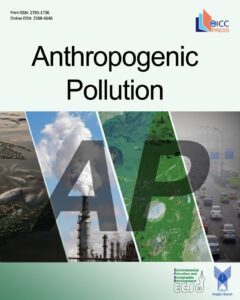Designing and presenting an environmental management model with an emphasis on energy management in office buildings (Case study: District 5 Municipality of Tehran, Iran)
Authors
- Maryam Ganjineh 1
-
Farzam Babaei Semiromi
*
 1
1
- Ali Mohammadi 1
- Seyed Alireza Mirzahosseini 1
- Mohammad Reza Tabesh 1
Abstract
The present applied research aimed to model energy management in office buildings of District 5 Municipality of Tehran, Iran. The components affecting energy consumption were extracted via an integrated approach (including in-depth survey and semi-structured interviews with experts) using coding method and prioritized by Analytic hierarchy process and Expert Choice. The proposed model was fitted by structural equation modeling and the strategies were developed by Hitt’s strategic planning model. The results showed 10 components (in three dimensions) as effective factors in energy management. The highest and lowest weight percentages were respectively related to the components of “Using appropriate technology for manufacture and providing and using low-consumption supplies and equipment” (26.8%), and “Implementing green tax policy” (1.7%). Goodness of fit index values for the three domains of the integrated model were 0.942 (for architecture and engineering), 0.941 (for behavioral patterns) and 0.901 (for rules and regulations), which were in the acceptable area due to being more than the standard value (0.9), as well as the root mean square residual values were 0.079, 0.073 and 0.061, respectively, which were in the acceptable area due to being lower than the standard value (0.08). The strategies of “Strengthening the infrastructure and equipment in the field of energy consumption optimization” and “Using green tax and incentive solutions in energy consumption” were placed in the first and last priorities with final weights of 4.16 and 3.156. These findings were a claim for the good and acceptable fit of the proposed 10-component and 9- strategy model.



